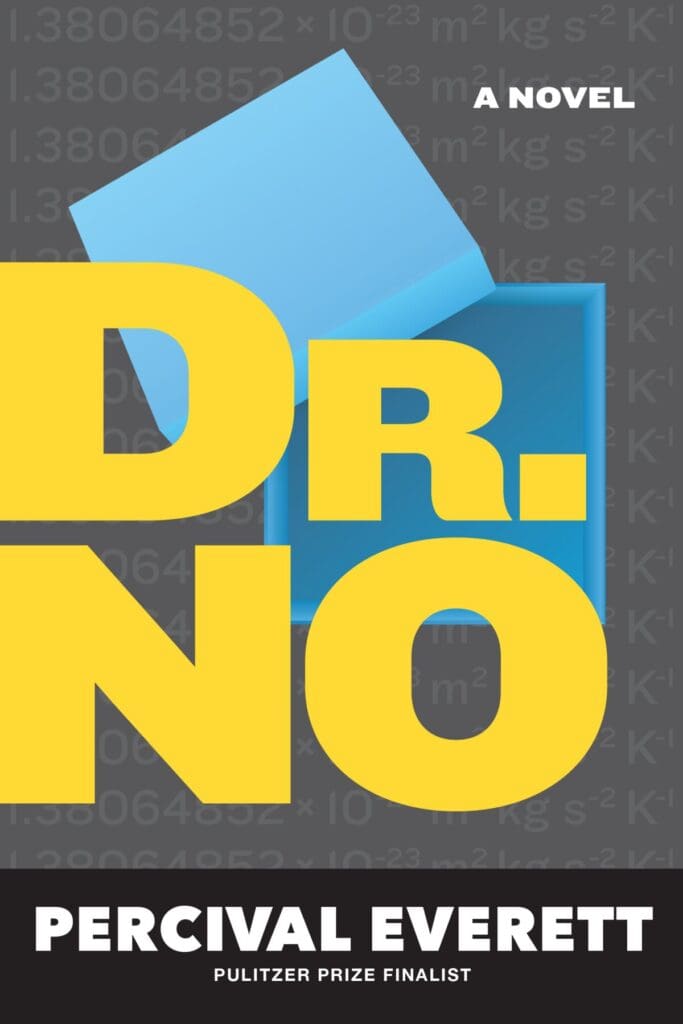A black, autistic mathematician, Wala Kitu is not James Bond—but he is the hero of Percival Everett’s anti-Bond, Bond novel, Dr. No (262 pages; Graywolf Press). The book, now a National Book Critics Circle award finalist, is very much a spy thriller—filled with sports cars, hench-people, secret submarines, and hidden shark traps—even though Everett radically subverts the classic 007 formula. Wala’s love interest is another autistic mathematician, Eigen Victor, a specialist in topology with a tendency to state the obvious. And the nefarious super-villain is John Sill, a self-made Black billionaire whose sole purpose is to destroy America, to exact revenge for the murders of his parents, which he blames on the country’s deeply embedded racism. His plan? Just like Auric Goldfinger, he will take over Fort Knox, only his secret weapon is not an atom bomb, but nothing.
What is “nothing”? For one, Wala is a professor nothing, and this expertise is why Sill initially brings him into the fold. But nothing is not merely academic. Not absence, not lack, not zero, nothing is simply, positively nothing—and quite possibly the most powerful substance in the universe. It has the peculiar quality of turning something, anything, into nothing and it’s this potential that Sill wants to harness, to use nothing to turn America into nothing, as if it never existed. Wala and Eigen are at first oblivious, enjoying Sill’s yacht and mansion, eating caviar and drinking fine wine. But as the bodies pile up, the two realize Sill for who he is—a psychopath willing to do anything for nothing. They know they must save the world.
Early on, the novel’s discussions on nothing tease a philosophical bent, but these ruminations are little more than exposition. And though both protagonist and antagonist are Black, aside from a couple bits of commentary, race is incidental to the plot at large. Neither are faults: good novels don’t have to be deep, and black writers don’t have to write about blackness. Instead, Dr. No is funny. Everett often uses “nothing” to great comedic effect—often juxtaposing in dialogue its sober, literal usage by Wala and Eigen with its idiomatic usage by everyone else, which the two mathematicians always fail to understand. And it’s equally entertaining when Bond tropes are parodied, like when Wala, unlike 007, is coolly asexual and says of his first kiss, “She was rather like kissing a colander.”
Dr. No is unconventional but it’s entertaining nonetheless. The reader is brought aboard early, quickly encountering quirky characters and jet-setting around the world, as the plot steadily accelerates until the grand finale at Fort Knox. Wala and Eigen can be difficult to identify with as protagonists —a little too smart and detached—but Everett balances his icy heroes with witty dialogue and a fiery, charismatic villain. This novel is not thought-provoking, but it is brainy and comical instead, and it follows the tradition of John Le Carre, Graham Greene, and Viet Thanh Nguyen—original, compelling spy novels that avoid cliché. If anything, Dr. No proves once again that spy thrillers don’t need a suave, virile secret agent.

